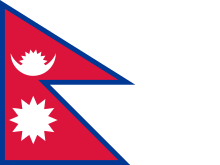Introduction
Center for Education and Human resource Development (CEHRD) was established under the Ministry of Education, Science and Technology (MOEST) on 6th Jestha 2075 B.S. as per the decision of the Government of Nepal. It was established by integrating three central level agencies: Department of Education (DOE), National Center for Educational Development (NCED) and Non-formal Education (NFE) which were active under the Ministry of Education.
The CEHRD works to implement the national policy and plans relating to free and compulsory basic education and free secondary education. The focus of the works are related to meet the aims to “ensure inclusive, and equitable quality education and promoting life-long opportunities for all”. Broadly, the functions of the CEHRD can be classified into three areas: setting the standards and grants management for schools; capacity development of teachers and educational personnel; and supporting to literacy and lifelong learning.
With the close co-ordination and collaboration of various central agencies, educational agencies of the provincial government and local level as well as development partners and local education groups, CEHRD formulate annual strategic plans and annual program and budgeting, review the progress and formulate the standards. It also disseminates national policy, standards and programs in provinces, local levels and districts for the effective implementation.
The CEHRD has three divisions: Educational Planning and Development Division, Human Resource Development Division and Educational Technology and Non-formal Education Division. There is an arrangement that the Director General (DG) will be the head of the center and each division will be headed by the Deputy Director General (DDG). There are 17 branches under the CEHRD and 77 Education Development and Coordination Unit (EDCU), one in each district to support, co-ordinate and disseminate the programs.
Work description of the CEHRD
- Coordination with bilateral and multilateral development partners and agencies related to school education.
- Implementation and coordination of projects and programs including school education sector plan in accordance with national and international commitments and agreements related to education.
- Implementation of compulsory and free basic education and free secondary education.
- Formulation of human and educational resource development plan.
- Research and Innovation to improve the quality of school education, determining and monitoring national quality standards.
- Facilitation and coordination on technical subjects as requested by the province and local levels.
- Collection, management and dissemination of integrated educational management information system
- Facilitation and management of necessary resources for planning and implementation of minimum learning conditions with physical facilities for school education.
- Formulation of policy and standards related to early childhood education and development and the coordination of the program
- Developing and implementing the necessary standards for the implementation of compulsory and free basic education
- Necessary policy arrangements for general and technical education towards secondary education.
- Determining the minimum national standards for the establishment and operation of educational institutions and the necessary coordination, facilitation and monitoring.
- Management and facilitation of necessary resources for the use of information technology in school education.
- formulation and implementation of incentive programs such as scholarships, mid-day meals, etc. to increase access to school education.
- formulation and implementation of standards for teacher management and development.
- Develop and approve curriculum frameworks for in-service teacher training, training courses, resource materials, instructor preparation, training standards, training certification and equivalency.
- Provide technical support, coordination, monitoring and regulation of Inter-provincial educational training programs and related agencies,
- Develop teacher training policies and standards, develop curriculum framework and training certification, develop skill test standards and coordination with training centers for inclusive education, gender equality, mother tongue, and special education-related work.
- Development and implementation of safe school policy and integrated school safety programs for disaster risk reduction in schools.
- Coordination and facilitation in the development of model schools operations and management.
- Develop the standards of Traditional Education and Non-formal and LIfe long learning and co-ordination and Facilitation the effective implementation.
- Development of educational materials, training curriculums, reference materials and model learning materials for enhancing the educational quality
- Conducting sample testing programs of school education and formulating policies for necessary improvements based on the results.
- Formulation and implementation of model programs in line with the inclusive education policy to manage linguistic, gender, and disability diversity.
- Facilitation of school nutrition and child-friendly schools.
- Develop Standards and developing institutional capacity of institution and human resources working in education administration.
- Development and transmission of audio and video program and coordination for distance learning/open learning programs.
- Designing and implementing educational quality improvement programs in partnership and collaboration with development partners and training providers.
- Develop standard and guide line of non-formal education, continuing education and community learning center for effective implementation.
- Organize professional and personal development programs of center level officials.
- Activities related to inclusive education, gender equality and special education.
- Develop standards of resource center and resource persons.
- Co-ordinate with province and local level for educational issues.
- Other activities assigned by the Ministry of Education, Science and Technology.


